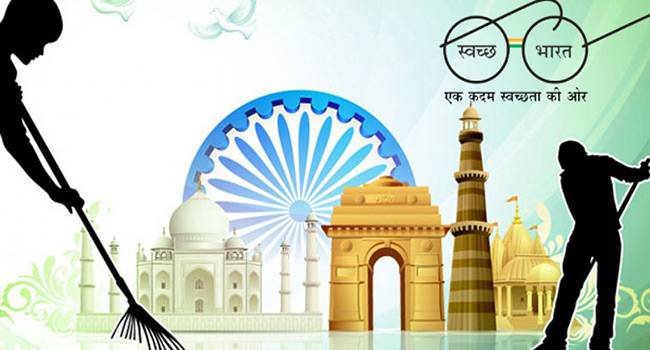NEW DELHI, Oct 2: Underlining six successful years of “Swachha Bharat Mission – Urban,” India on the occasion of the 151st Gandhi Jayanti day on Friday pledged to take a quantum leap towards a “Swachhatam Bharat Mission” for a cleaner, healthier country.
The day was celebrated by the union ministry of housing and urban affairs (MoHUA). The minister of state for MoHUA, Hardeep Singh Puri in his address in a webinar titled ‘Swachhata Ke 6 Saal, Bemisaal’ to celebrate the sixth anniversary of Swachha Bharat Mission-Urban (SBM-U), said the spirit of Jan Andolan and Jan Bhagidari – the power of collective action and leveraging a healthy spirit of competition was exemplified by the Swachha Survekshan, the annual cleanliness survey of MoHUA in which over 12 crores of citizens participated in the current year.
The minister said as the country completed six years of SBM-U, “it is time to reaffirm the pledge that we all together took – to come together for a Swachhatam Bharat – a cleaner, healthier India and further fortify the Jan Andolan that all urban Indians were part of.
The webinar marked celebration of the achievements of the past six years under the Mission along with experience sharing by States and cities and partner organizations and also marks the 151st birth anniversary of Mahatma Gandhi.
Durga Shanker Mishra, Secretary, MOHUA who made a detailed presentation on the achievements of the Mission, added, “When SBM-U was launched on 2nd October 2014, it was with the objective of making urban India Open Defecation Free (ODF) along with complete solid waste management (SWM) in all statutory towns in the country. Today, we have not only achieved our targets but propelled the country on the path of sustainable sanitation and holistic SWM through protocols such as ODF+ and ODF++, Star Rating for Garbage Free Cities and our annual cleanliness survey, Swachha Survekshan which needs no introduction.
“From a position of zero ODF states and cities in 2014, more than 97% of our cities have today become ODF. In SWM, from a meagre 18% of solid waste that was being processed in 2014, we have gone up to 67% of waste being processed, and more than 77% wards are practising source segregation. We intend to continue our efforts and ensure that these numbers see substantial improvement in the next few years,” Mishra added.
The inaugural session of the event also featured a short film, ‘Swachhata Ke 6 Saal, Bemisaal’ that captures the journey and impact of SBM-U since its launch in 2014. The last six years of the Mission has also seen several digital innovations that have been game-changers when it comes to improving service delivery in Swachhata – key interventions include Swachhata App, the citizen grievance redressal tool for complaints related to cleanliness, SBM Toilets on Google Maps which lets users locate the nearest public toilet on Google Maps and Swachha Manch, the digital engagement platform for citizens dedicated to Swachhata related activities and events. Complementing these digital interventions are innovative multimedia campaigns on themes ranging from sustained usage of toilets, source segregation of waste and practising home composting.
All these efforts, aimed at bringing the Mission closer to the citizens, have resulted in crores of citizens directly participating in the program – while over 12 crore citizens had participated in the last edition of Swachha Survekshan, over seven crore citizens had come together in Swachhata Hi Seva 2019 to realize the prime minister’s vision of single-use plastic free India, an official spokesman of the ministry said.
The event saw selected states and cities such as Uttarakhand, Kerala, Imphal, Dungarpur, Khargone etc sharing their experiences of the past six years and chalking out the next steps towards a Swachhatam Bharat. Participants also got the opportunity to listen to the experiences of SBM-U’s development partners that include the United States Agency for International Development (USAID), Bill & Melinda Gates Foundation (BMGF), GIZ, United Nations Development Program (UNDP) and United Nations Industrial Development Organization (UNIDO).
A series of key publications were also launched by the Ministry. While the document ‘Frontline Stories of Resilience: India’s Sanitation Champions’ compiled by the National Faecal Sludge and Septage Management (NFSSM) Alliance presents inspirational stories of sanitation workers from across the country, the ‘COVID Diaries: Responses of Indian Cities to COVID-19’ by the National Institute of Urban Affairs (NIUA) documents a range of actions and initiatives taken by Indian cities during the first four months of lockdown period of Covid-19 and provides a Resilient Urban Sanitation Response (RUSR) Framework, which can be applied by cities in responding to the pandemic situation.
(Manas Dasgupta)

